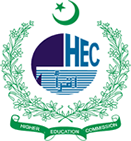EFFECTS OF SPORTS, PLAY AND ACTIVE RECREATION FOR KIDS VERSUS FUNDAMENTAL MOTOR SKILL TRAINING ON MOTOR SKILLS IN CHILDREN WITH AUTISM SPECTRUM DISORDER
Abstract
Children with autism spectrum disorder (ASD) often struggle with motor skills and coordination, making motor planning and execution difficult. Despite challenges in healthcare and education, improving mobility and functional status in autistic children remains a crucial area of research. Objective: The study aimed to assess and compare the effects of the Sports Play and Active Recreation for Kids (SPARK) program and Fundamental Motor Skill (FMS) training in improving the motor skills of children with ASD. Methods: The study protocol received ethical approval and was registered in the National Clinical Trial Registry (NCT05986760). Participants meeting inclusion criteria were referred by healthcare professionals and underwent a comprehensive screening process. Randomised allocation assigned participants to either Group A (SPARK) or Group B (FMS). Assessments of koij skill development using the Bruininks-Oseretsky Test of Motor Proficiency (BOTMP) were conducted at baseline and post-intervention by blinded assessors. Results: Both Group A (SPARK) and Group B (FMS) exhibited significant improvements in motor skills across various domains assessed by BOTMP. Group A showed substantial enhancements in different domains of BOTMP (p<0.05 for all). Group B similarly demonstrated significant improvements in these domains (p<0.05 for all). Baseline comparisons showed no significant differences between the groups, and post-treatment comparisons indicated no significant difference in motor skill outcomes (p>0.05). Conclusion: Both SPARK and FMS interventions effectively enhanced motor functions in children with ASD. These findings emphasise the importance of individualised physical activity programs for children with ASD.
Keywords: Autism Spectrum disorder, Coordination, Gross motor proficiency, Motor skills proficiency, Spark program
Additional Files
Published
How to Cite
Issue
Section
License
Copyright (c) 2024 Pakistan Journal of Physical Therapy (PJPT)

This work is licensed under a Creative Commons Attribution 4.0 International License.



